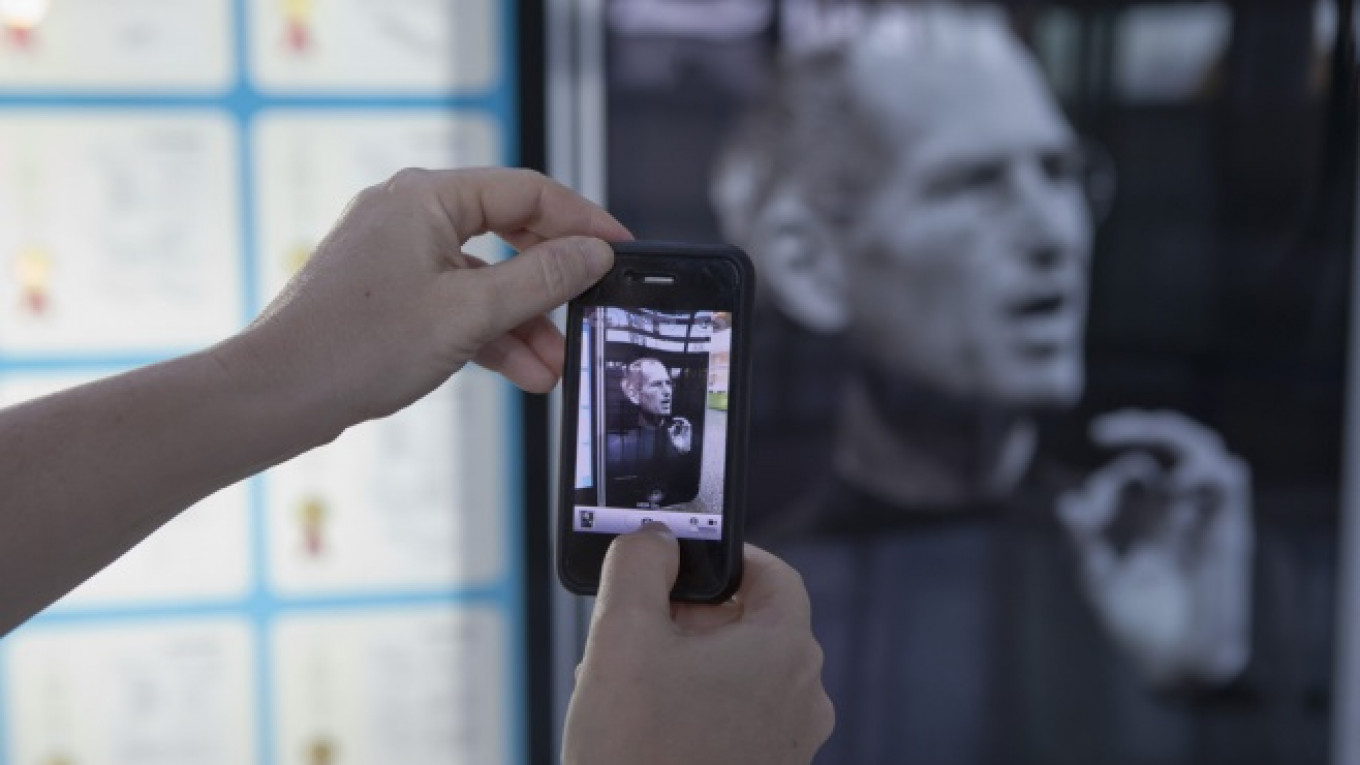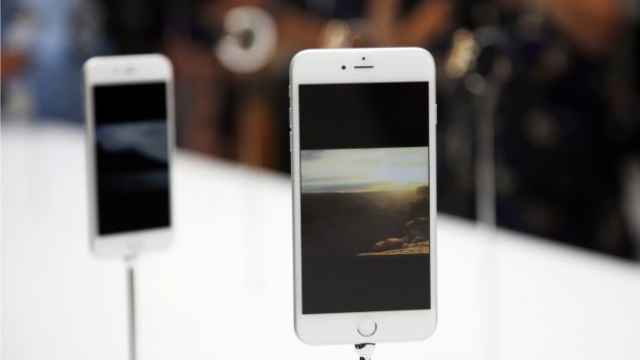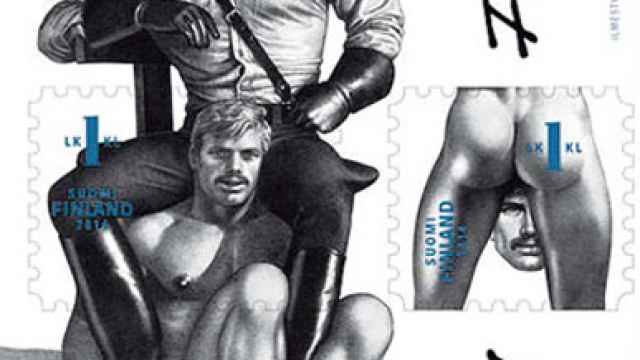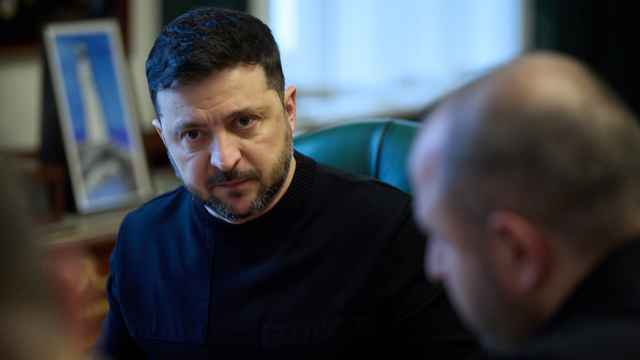A memorial to Apple Inc. founder Steve Jobs has been dismantled in St. Petersburg after the man who succeeded him at the helm of the company, Tim Cook, came out as gay.
The two-meter-high monument, in the shape of an iPhone, was erected outside a St. Petersburg college in January 2013 by a Russian group of companies called ZEFS.
Citing the need to abide by a law combating "gay propaganda," ZEFS said in a statement on Monday that the memorial had been removed on Friday — the day after Apple CEO Cook had announced he was homosexual.
"In Russia, gay propaganda and other sexual perversions among minors are prohibited by law," ZEFS said, noting that the memorial had been "in an area of direct access for young students and scholars."
"After Apple CEO Tim Cook publicly called for sodomy, the monument was taken down to abide by the Russian federal law protecting children from information promoting denial of traditional family values."
Promoting "traditional values," President Vladimir Putin last year signed a law prohibiting the spread of "gay propaganda" among minors.
Putin says there is no discrimination against gay people in Russia and the law was needed only to protect young people, although members of the gay community say its passage has increased problems for them.
ZEFS — or West European Financial Union — groups companies offering a range of products and services in areas such as real estate, construction, advertising and microfinancing.
Cook said he had decided to come out to help move forward civil rights, confirming a fact that had been widely known in the Silicon Valley tech community but was rarely discussed.
Steve Jobs, who died in 2011, was not gay.
Vitaly Milonov, a St. Petersburg legislator who has campaigned against gay rights and was among legislators behind the law signed by Putin, has called for Apple's CEO to be prohibited from entering Russia, Russian media have reported.
Maxim Dolgopolov, the head of ZEFS who ordered the removal of the monument, expressed opposition to personal sanctions in Monday's statement, but supported the "protection of traditional values" by law.
"Sin should not become the norm. There is nothing to do in Russia for whose who intend to violate our laws," he said.
The "gay propaganda" law caused outrage and protests in the West, particularly in the run-up to the Winter Olympics hosted by Putin in the Black Sea resort of Sochi in February.
A Message from The Moscow Times:
Dear readers,
We are facing unprecedented challenges. Russia's Prosecutor General's Office has designated The Moscow Times as an "undesirable" organization, criminalizing our work and putting our staff at risk of prosecution. This follows our earlier unjust labeling as a "foreign agent."
These actions are direct attempts to silence independent journalism in Russia. The authorities claim our work "discredits the decisions of the Russian leadership." We see things differently: we strive to provide accurate, unbiased reporting on Russia.
We, the journalists of The Moscow Times, refuse to be silenced. But to continue our work, we need your help.
Your support, no matter how small, makes a world of difference. If you can, please support us monthly starting from just $2. It's quick to set up, and every contribution makes a significant impact.
By supporting The Moscow Times, you're defending open, independent journalism in the face of repression. Thank you for standing with us.
Remind me later.






